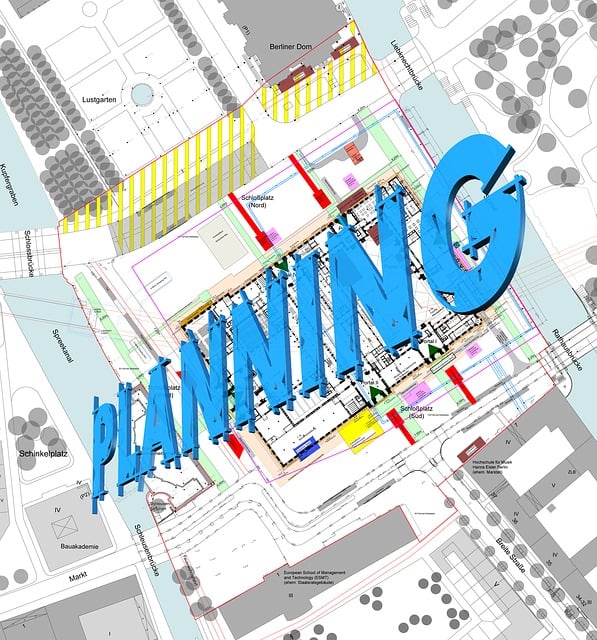Event planning for local businesses is a multifaceted endeavor that hinges on selecting an appropriate venue, meticulously managing catering to accommodate dietary needs and preferences, and curating entertainment that resonates with attendees and aligns with the host company's brand. The chosen venue must be accessible, accommodating various event formats, and equipped with necessary amenities like high-speed internet and audiovisual technology. Catering should be tailored to reflect thoughtfulness towards guests' needs, with professional culinary teams ensuring that food presentation and flavor complement the event theme and flow. Entertainment and activities are integral for fostering engagement and interaction among attendees, and should be selected based on the audience's demographics and interests, as well as the company's values and message. By integrating these elements strategically, local businesses can create impactful events that leave a lasting impression and support their professional image.
When local businesses plan corporate functions, the harmony of well-executed events hinges on meticulous preparation. This article navigates the art of event planning for local businesses, emphasizing strategic venue selection that aligns with company values and objectives, coordinating exquisite catering options to tantalize taste buds, and streamlining entertainment and activities to captivate attendees. Each element is crucial in ensuring corporate functions proceed without a hitch, creating an environment ripe for networking, collaboration, and celebration. Join us as we explore the intricacies of orchestrating seamless business gatherings that leave a lasting impression.
- Strategic Venue Selection: Key Factors for Local Business Events
- Coordinating Catering and Cuisine: A Delicious Element of Successful Corporate Functions
- Streamlining Entertainment and Activities: Enhancing Engagement and Enjoyment at Local Business Gatherings
Strategic Venue Selection: Key Factors for Local Business Events

When local businesses plan corporate functions, strategic venue selection is paramount to the event’s success. The right location can enhance the ambiance, accessibility, and overall experience for attendees, which in turn reflects positively on the hosting company. To begin with, the venue should align with the company’s brand image and the event’s theme. Proximity to major transport hubs is a critical factor as it ensures ease of access for guests, potentially reducing travel time and the associated stress. Additionally, ample parking or nearby public transit options are essential to accommodate attendees who prefer not to drive.
Furthermore, the venue’s capacity and layout must cater to the expected number of participants and the nature of the event activities. The space should be versatile enough to facilitate various event formats, whether it’s a conference, workshop, or large-scale gala. High-speed internet connectivity and state-of-the-art audiovisual equipment are non-negotiable for presentations and interactive sessions. Catering services that offer customizable menus tailored to dietary preferences and restrictions should also be a consideration. Lastly, the venue’s reputation for reliability and the quality of service provided by their staff can significantly impact the professional image of the business hosting the event. Event planning for local businesses requires a meticulous approach to venue selection, ensuring that every aspect of the location supports the event’s objectives and enhances the participants’ experience.
Coordinating Catering and Cuisine: A Delicious Element of Successful Corporate Functions

When event planning for local businesses, ensuring seamless corporate functions often hinges on the harmonious integration of catering and cuisine. A well-coordinated culinary experience can elevate an event from ordinary to exceptional, leaving a lasting impression on attendees. The selection of menus that cater to diverse dietary preferences and restrictions is paramount, as it reflects the host’s consideration for their guests’ needs. Moreover, timely execution by professional caterers, who understand the importance of presentation and flavor, contributes significantly to the overall success of the function. The precision with which these gastronomic elements are managed, from the initial menu planning to the final service delivery, is a testament to the meticulous nature of event planning for local businesses. It is this attention to detail in coordinating catering and cuisine that often becomes a defining element of a corporate event’s reception, underpinning the professionalism and thoughtfulness of the hosting organization.
The synergy between event planners and culinary teams is crucial in delivering an unforgettable experience. These teams work hand-in-hand to ensure that each dish not only complements the theme of the corporate function but also aligns with the flow of events. The logistics of catering, from food preparation to serving and cleanup, are executed with a level of precision that goes unnoticed yet is integral to the event’s smooth operation. In the realm of corporate gatherings, the cuisine serves as more than sustenance; it is an experience designed to engage all senses, enhancing the networking and business exchanges that occur during such events. Thus, for local businesses looking to make a strong impression, the coordination of catering and cuisine cannot be overstated; it is a strategic component that aligns with the broader goals of effective event planning.
Streamlining Entertainment and Activities: Enhancing Engagement and Enjoyment at Local Business Gatherings

Organizing entertainment and activities for corporate functions is a critical aspect of event planning for local businesses, aimed at fostering a dynamic and enjoyable atmosphere that enhances engagement among attendees. A well-curated selection of activities not only breaks the ice but also maintains the energy throughout the event. For instance, interactive games can be designed to align with the company’s ethos or product offerings, creating a cohesive and immersive experience. Additionally, incorporating local cultural elements or trends can resonate with participants, making the event more relatable and engaging.
To maximize the effectiveness of these entertainment components, it is essential to tailor them to the specific audience and the event’s objectives. This involves understanding the demographic of attendees, their interests, and the desired outcomes for the gathering. By leveraging data-driven insights, local businesses can select activities that are not only enjoyable but also relevant to the company’s message and values. For example, a tech company might opt for virtual reality experiences or technology-driven games that showcase innovation, while a creative agency might focus on artistic endeavors like live graffiti art or a band performance that reflects their brand’s creativity. By thoughtfully integrating entertainment into the event planning process, local businesses can ensure a memorable and impactful experience for all participants, thereby elevating the overall success of the corporate function.
In conclusion, local businesses can significantly enhance their corporate functions by meticulously planning each aspect, from strategic venue selection that aligns with the event’s objectives to coordinating catering that satisfies attendees’ culinary preferences. Furthermore, incorporating entertainment and activities tailored to the audience ensures a memorable and engaging experience for all participants. By adhering to these best practices in event planning for local businesses, organizations can host events that leave a lasting impression, fostering both professional networking and an enjoyable atmosphere. Attention to detail in these areas not only underscores the importance of a well-planned event but also contributes to the overall success of corporate functions.
